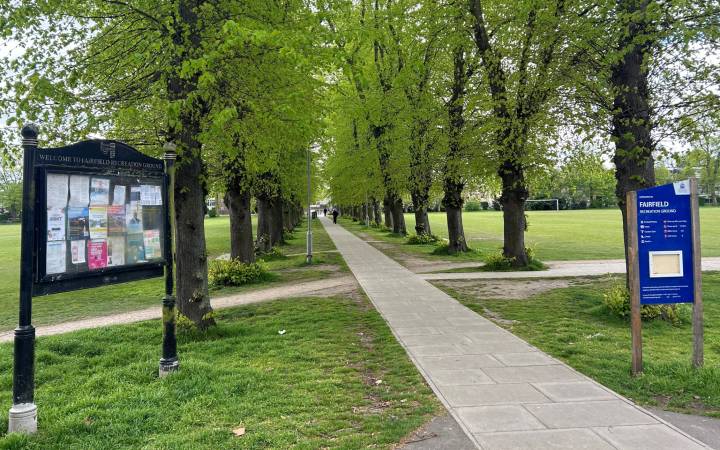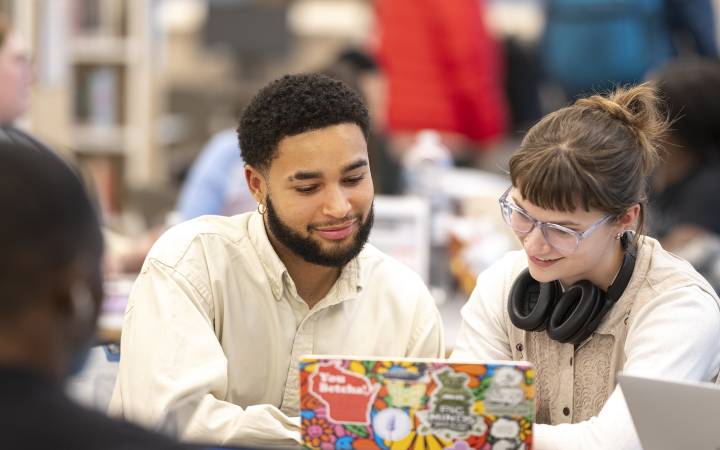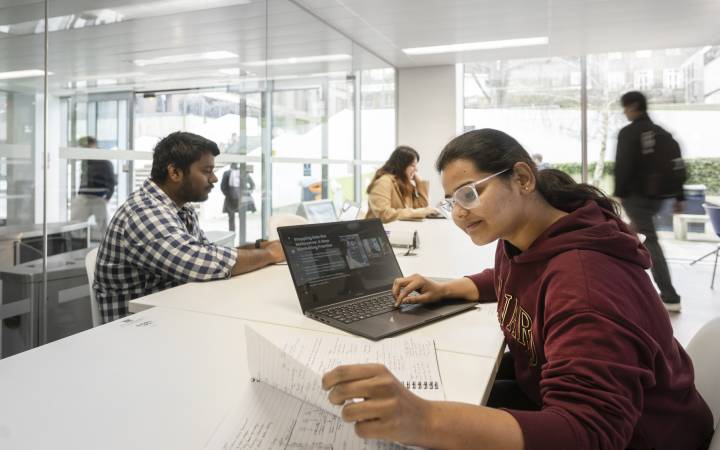Neurodiversity Celebration Week: Kingston University launches pilot project to enhance learning environments for neurodivergent students
Posted Monday 18 March 2024
 Kingston University runs a number of initiatives to support neurodivergent students.
Kingston University runs a number of initiatives to support neurodivergent students.
Kingston University has launched a pilot project to raise awareness of neurodiversity and make learning spaces more inclusive and supportive for neurodivergent students and staff.
Recognising the value of neurodiversity as a natural aspect of human variation, the initiative seeks to foster inclusivity and support the diverse needs of all learners by understanding systemic barriers and attempting to remove them. It is led by Kingston's Inclusion and Social Justice Special Interest Group (SIG) and academics from the school of Education, Midwifery and Social Work and is supported by the Network of Equality Champions.
The project aims to:
- Raise awareness: Increase understanding of how environmental factors affect neurodivergent individuals' everyday experiences
- Identify modifications: Recommend adjustments to classrooms, lecture theatres, and social spaces to enhance inclusivity and improve the learning experience for everyone
- Engage stakeholders for co-production: Gather input from staff and education, social work and psychology students across the neurodiversity spectrum who are already engaging with the notion of enabling environments for their studies
- Improve sustainability: Aim to work closely with LTEC to create tools and resources for sustainable neuro-inclusive practices, aligning with Kingston University's commitment to ongoing improvement and sustainability.
This project builds on a collaboration and knowledge exchange project with ADHD Embrace charity that saw ADHD seminars for teaching professionals and relevant video resources underscores Kingston University's commitment to fostering a supportive and inclusive learning environment for all students.
As part of Neurodiversity Celebration Week (18-24 March), Associate Professor in Inclusive Education Dr Paty Paliokosta, Master of Social Work course leader Aga Buckley and senior lecturer and course leader of the Special Educational Needs and Inclusive Practice FdA and BA top-up Anne Maloney explain the importance of supporting neurodiverse students. They are all a part of Kingston's Inclusion and Social Justice SIG and Network of Equality Champions.
Dr Paliokosta, who has more than two decades of experience in the field of special and inclusive education, said the University's investment in neuro-inclusive spaces, reaffirms Kingston's dedication to student wellbeing and academic success. "By engaging in this small project, based primarily on learning and listening events for our students and staff, we have had the opportunity to relate to other colleagues across faculties that work in similar areas and expand our network, such as the Autism Peer Network that is facilitated by Dr Elisa Back," she said.
"We are running a series of events throughout the year to support neurodivergent students and improving communication between higher education and work sectors. These include speed dating, visual presentations and workshops that will bring together education, social work, psychology and the arts," she added.
Aga Buckley, a member of the British Association of Social Workers (BASW) Neurodivergent Social Worker SIG and an advocate for equity and neuro-inclusion, recognises inherent links between inclusivity, mental health and wellbeing. “I love learning, meaningful relationships, and the freedom to accept differences, all fuelled by my personal experience of neurodivergence and cultural diversity, coupled with years of mental health practice,” she says. Ms Buckley’s doctoral study, currently in the research phase, explores the lived experiences of compassion fatigue among newly qualified social workers.
Anne Maloney, who has lived experience of neurodivergence, is constantly striving to break down the stereotypes. "Many of my adult learners work with neurodivergent pupils and are also neurodivergent themselves. I am always keen to learn from them things that can make a difference to them and help them thrive during their time at university," she said. "There are many assumptions made about learners who identify as neurodivergent and as academics we should be challenging these and developing our own pedagogies in this area," she added.
Kingston's Inclusion and Social Justice SIG and Network of Equality Champions are running a series of events for Neurodiversity Celebration Week, beginning on Monday 18 March, and Thursday 28 March. A knowledge exchange event for academics and external stakeholders and schools is taking place in May, supported by School Director of Research, Dr Christos Dimitriadis alongside nursing and social work academics including Senior Lecturer Mental Health Nursing, Nicola Ryan.
Contact us
General enquiries:
Journalists only:
- Communications team
Tel: +44 (0)20 8417 3034
Email us



